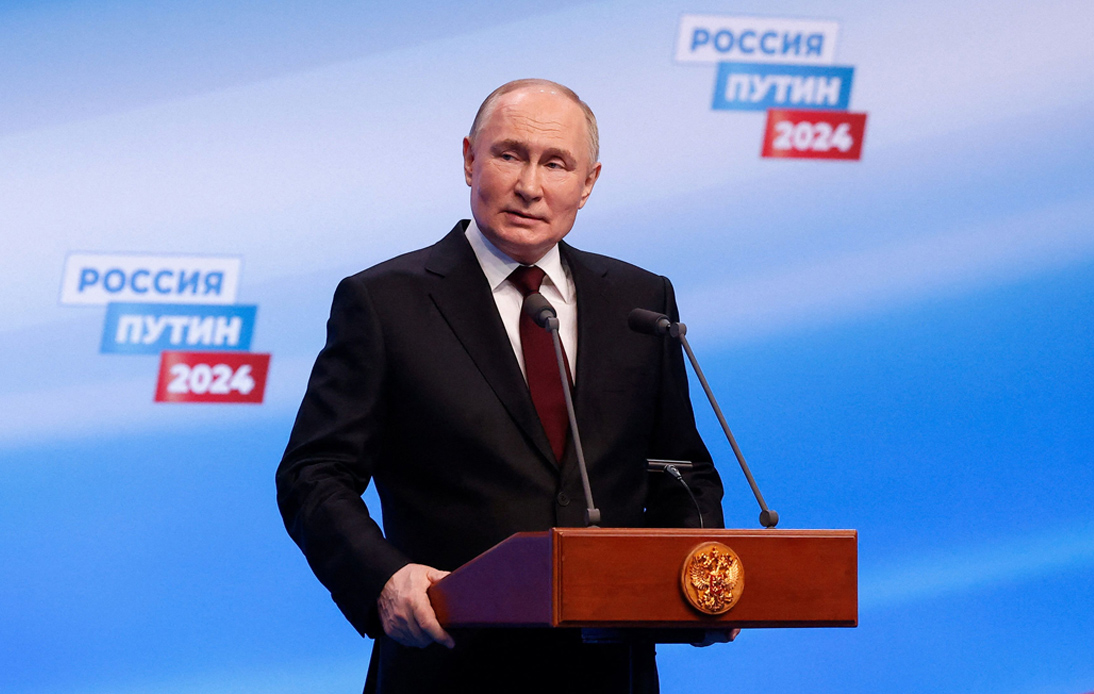
On Sunday, Vladimir V. Putin secured his leadership over Russia until 2030, orchestrating a presidential election with no real competitors to showcase widespread popular support for his governance and military actions in Ukraine.
In response to the undemocratic electoral process, some Russians attempted to turn their vote into a statement of protest by organizing queues at polling places at a specific time, midday, to express their dissatisfaction.
Simultaneously, Ukraine made its own symbolic gesture of defiance by launching a series of explosive drones toward Moscow and other strategic locations.
Despite these acts of defiance, the Kremlin dismissed them and announced post-election that Putin had secured 87 percent of the vote, surpassing the tallies from his previous four elections.
Following the announcement, Putin indulged in an extended public celebration of his victory, highlighted by a late-night press conference where he addressed, for the first time, the demise of jailed opposition figure Aleksei A. Navalny, describing it as a “regrettable event.”
With his new six-year term, Putin aims to further strengthen his grip on Russian politics and continue the conflict in Ukraine. Should he complete this term, he will surpass Catherine the Great as the longest-serving leader of Russia since the 18th century.
The international community, led by Western nations, swiftly denounced the lack of democratic integrity in the election. Adrienne Watson, representing the U.S. National Security Council, criticized the election as neither free nor fair.
As Putin prepares for a fifth presidential term, his stance against the West remains as defiant as ever, with indications of his readiness to further escalate tensions.
During the press conference, when questioned about the potential for a full-scale conflict between Russia and NATO, Putin suggested, “I think that anything is possible in today’s world.”
Despite international criticism, the Kremlin views the election as key to reinforcing Putin’s image as a leader genuinely supported by the public.
Political analysts anticipate that Putin will promote war advocates within the Russian government, speculating that Western backing for Ukraine will wane, forcing the Ukrainian government into negotiations favorable to Russia.
When asked about his goals for the upcoming term, Mr. Putin initially addressed his military actions in Ukraine, stating, “We need to carry out the tasks in the context of the special military operation.”
He mentioned that the election outcomes have served to “consolidate society” under his leadership, a sentiment that state television also echoed.
Determining the true level of support for Mr. Putin among the Russian electorate was difficult, especially since opposition candidates were not allowed to compete and practices like ballot-stuffing and fraud were not uncommon in previous elections.
This election marked a new low in terms of transparency in Russia’s recent history, as the activity of independent election monitors was diminished to a degree unseen since the Soviet Union’s dissolution.
Reports indicated that over five million votes originated from areas of Ukraine under Russian control, with instances of individuals being coerced to vote under the supervision of armed Russian military personnel.
Notably, in the Donetsk region, which is occupied by Russia, Mr. Putin purportedly secured 95 percent of the votes.
Comparatively, in the 2018 presidential election, Mr. Putin’s official share of the vote was 78 percent, significantly lower than the figures reported this weekend.




















